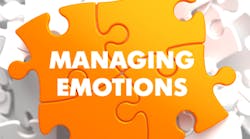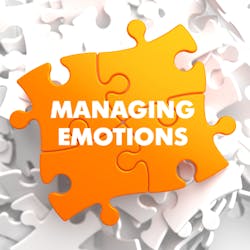Tuesday Tip from Pride Institute: What is Emotional Intelligence, and what’s it got to do with my dental practice?
In almost every book I’ve ever read on key leadership traits, the need/desire for Emotional Intelligence (EI) continues to place in the top 10. In my years as a consultant in the dental industry, I’ve seen plenty of examples of IQ with a definite lack of EI to back up the brains.
1. Perceiving emotions—The first step (piston) in gaining EI is to understand yours and other’s emotions as accurately as possible. In essence, the goal is to become conscious of emotions. In many cases this might involve understanding nonverbal signals such as body language and facial expressions, as well as recognizing your own internal signals.
2. Reasoning with emotions—The next step involves using emotions to promote innovative thinking and cognitive activity (perception, intuition, and reasoning). This can also be described as cognitive dissonance, which I like to describe as “The truth shall set you free but first it will raise your pissivity.” Emotions help prioritize what we pay attention and react to. We respond emotionally to things that either fill us with joy or anxiety.
3. Understanding emotions—The emotions that we perceive can carry a wide variety of meanings. If your hygienist is expressing anger at the huddle through her body language, the dentist may interpret the cause of her anger that she is dissatisfied with her job. But the emotion may be because she got a speeding ticket on the way to work, or that she's been fighting with her husband. The key to understanding emotions is to approach with curiosity (why), not judgment (what).
4. Managing emotions—The final element and in many ways the most important factor is the ability to manage emotions effectively. You and those you serve always have a choice regarding how to react to emotional stimulus. The good news is you don’t always have to react the right way to be emotionally intelligent. You just have to be accountable to what you do or say as a result of the reaction. If the dentist is aware that he or she reacted with frustration when the assistant handed him or her the wrong instrument, he or she just needs to double back after the fact and make sure the assistant survived.
Regulating emotions, responding appropriately, and responding to the emotions of others are all important aspects of emotional management. These are very simple concepts, but ones can be hard to embrace and do daily, weekly and monthly. I challenge you to demonstrate high levels of IQ + EI, because that is what spells success in your dental practice!
PAST TUESDAY TIPS:
Phone skills in your dental practice – would you make an appointment?
How to avoid difficult conversations
Margin — do you have it in your dental practice?
Tuesday Tips from Pride Institute are provided weekly on their Facebook page as well as in this column in DentistryIQ. To ensure you don’t miss any of Pride Institute’s proven methods to take your practice to the next level, visit prideinstitute.com, and like them on Facebook.

